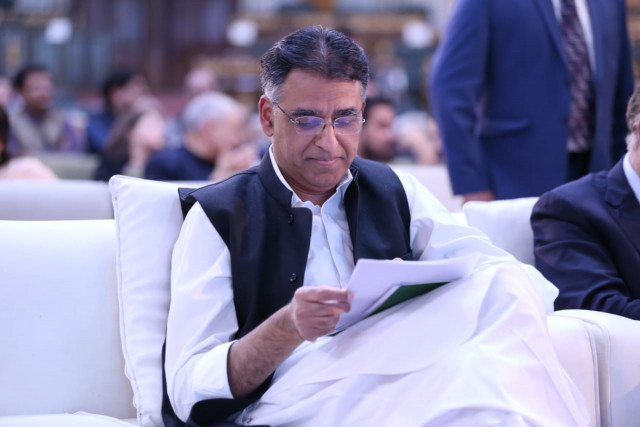Asad Umar’s challenging eight-month journey
He responded to turmoil with rupee depreciation, two supplementary budgets

PTI leader Asad Umar. PHOTO: PTI
Other key measures taken by the former minister were to cushion the fast depleting foreign exchange reserves and manage the rupee-dollar exchange rate.
After assuming charge, the finance minister sought financial help from friendly countries rather than going straight to the International Monetary Fund (IMF). However, experts believe that it was the delayed contact with the IMF that eventually led to the exit of Umar.
The tough circumstances faced by the country forced the finance minister to go against Pakistan Tehreek-e-Insaf’s (PTI) manifesto due to which Prime Minister Imran Khan was often criticised for taking U-turn. The efforts yielded results as the country succeeded in getting inflows from Saudi Arabia, the UAE and China on easy terms and conditions. Efforts were also made to get credit facility for oil imported from Saudi Arabia while an agreement was reached for increasing exports by $1 billion to China. In addition to these, two supplementary budgets were presented during the eight months with the target to cut imports.
Regulatory duties were imposed on several luxury items while overall taxes of Rs182 billion were imposed. In order to boost manufacturing and exports, the government provided a relief of Rs40 billion in taxes. Imports saw a record reduction due to additional duties, reflecting the steps taken to control the growing current account deficit.
Tariffs of electricity and gas were increased while an unprecedented increase in inflation was also recorded. During Umar’s brief stint, the central bank increased the policy rate to 10.75% while the rupee weakened to Rs141 from Rs121.
Umar also sought reforms in the Federal Board of Revenue (FBR) as policy-making and administration were separated.
Economic Advisory Council member Dr Ashfaque Hasan Khan said the removal of finance minister at a crucial time must pose challenges for the prime minister.
“Just after Asad Umar returned after having meetings with the IMF and World Bank and the IMF announced that it would visit the country for talks in the current month, the resignation of the finance minister sparks concern.”
He said the resignation of the finance minister may have far-reaching implications for the country’s economy, which currently appears to be a lifeless elephant.
Former Planning Commission deputy chairman Nadeemul Haque told The Express Tribune that the removal of Asad Umar was a political decision, adding that measures should be taken after careful thinking.
“The evolving situation is incomprehensible and it is uncertain where we are headed,” he said.
Published in The Express Tribune, April 19th, 2019.
Like Business on Facebook, follow @TribuneBiz on Twitter to stay informed and join in the conversation.



1733130350-0/Untitled-design-(76)1733130350-0-208x130.webp)















COMMENTS
Comments are moderated and generally will be posted if they are on-topic and not abusive.
For more information, please see our Comments FAQ